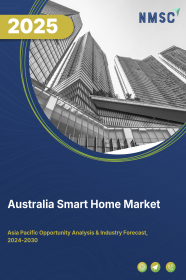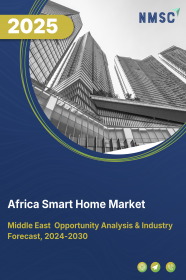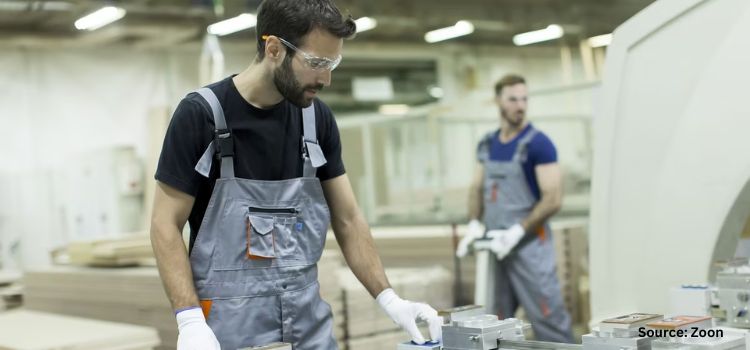
Australia Smart Home Market by Product Type (Smart Lighting, Smart Home Security and Surveillance, Smart Entertainment, and Smart Appliances), by Communication Protocol (Wifi, Zigbee, Z-wave, Bluetooth, and Thread), by Smart Home Hubs (Standalone Hubs, and Built-in Hubs), by Voice Assistants Integration (Amazon Alexa, Goggle Assistant, Apple Siri, and Others), by Smart Home Compatibility with Smartphones (iOS, and Android), and Others – Opportunity Analysis and Industry Forecast, 2024–2030
Industry: Retail and Consumer | Publish Date: 19-May-2025 | No of Pages: 179 | No. of Tables: 139 | No. of Figures: 84 | Format: PDF | Report Code : RC2294
US Tariff Impact on Australia Smart Home Market
Trump Tariffs Are Reshaping Global Business
Australia Smart Home Market Overview
The Australia Smart Home Market size was valued at USD 2.09 billion in 2023, and is predicted to reach USD 8.48 billion by 2030, at a CAGR of 22.2% from 2024 to 2030. A smart home, also referred to as a connected home, is a residential space equipped with cutting-edge technology and automation systems.
The smart home systems allow for the centralized control and monitoring of a wide range of household devices, appliances, and security features through a unified network. These intelligent devices is managed remotely and often respond to voice commands or pre-set schedules, providing homeowners with enhanced convenience, energy efficiency, and security.
Connected homes typically incorporate components such as smart thermostats, lighting systems, security cameras, voice assistants, and other interconnected devices, all aimed at enhancing the overall living experience.
Government Initiatives is Fueling the Smart Home Market Growth
The Australian government is spearheading various initiatives to promote smart home technologies, thereby propelling the smart home market expansion. These efforts include smart city initiatives aimed at incentivizing energy-efficient home upgrades and the installation of solar power systems.
By offering rebates and incentives, the government encourages homeowners to invest in Connected home solutions that foster energy savings and sustainability. For instance, the launch of the Future Melbourne 2026 plan by the Australian government outlines the city's vision for the future, focusing on sustainability, liveability, economy, and infrastructure. This strategic plan acts as a roadmap for Melbourne's development and growth, serving as a catalyst for the widespread adoption of connected home technologies nationwide.
Rising IoT Adoption is Driving Growth of the Market
The growing adoption of Internet of Things (IoT) devices and increased investment in IoT infrastructure in the region are driving the Australia smart home market expansion.
As more Australians connect their devices to the internet, including thermostats, lights, and security systems, homes become more innovative and efficient. Projections from the International Data Corporation indicate that spending on IoT in Australia and New Zealand will reach USD 24 billion by 2026, growing at a compounded annual growth rate (CAGR) of 10% from 2021 to 2026.
The widespread availability of high-speed internet enables consumers to conveniently control and monitor their connected home devices remotely, further stimulating the Australia smart home market demand.
Security and Data Privacy Concerns Pose a Barrier to the Market Expansion
The proliferation of connected systems introduces vulnerabilities, with smart devices such as thermostats, cameras, and door locks susceptible to hacking attempts. These security risks often arise from weak passwords and insufficient Wi-Fi network security measures, providing hackers with opportunities to gain unauthorized access and compromise residents' privacy and safety by controlling devices or accessing sensitive data.
To address these concerns, homeowners must adopt stringent password protocols, regularly update device firmware, and strengthen home networks to mitigate the threat of cyber-attacks and protect their smart homes from potential breaches.
Integration of Blockchain Technology into Smart Home Devices Presents Lucrative Opportunities for Market Expansion
The integration of blockchain technology holds immense potential for enhancing the security and privacy of smart home systems. This is achieved by encrypting and securely storing sensitive data, enabling users to control access to their information and mitigating the risk of unauthorized intrusion.
Blockchain technology also validates device identities, ensuring that only trusted devices participate in the connected home network, and simplifies processes through tamper-proof smart contracts. Furthermore, it decentralizes device control, thereby reducing vulnerabilities and facilitating transparent management of access control and permissions.
By integrating blockchain in smart homes, not only does it strengthen security and privacy, but it also fosters a safer and more confidential environment. As a result, it is poised to create significant opportunities for the Australia smart home market growth.
Competitive Landscape
Several market players operating in the Australia smart home industry include Honeywell International, Inc., Schneider Electric, ABB Ltd, Amazon, Loxone Electronics GmBH, Samsung, LG Electronics, Google Home, Hitachi, Ltd., Xiaomi Inc., Brilliant Lighting AU, TP-Link Australia Pty Ltd., Eufy Inc., Orion Corporation and Philips Signify.
Australia Smart Home Market Key Segments
By Communication Protocol
-
Wi-Fi
-
Zigbee
-
Z-wave
-
Bluetooth
-
Thread
By Smart Home Hubs
-
Standalone Hubs
-
Built-in Hubs
By Voice Assistants Integration
-
Amazon Alexa
-
Google Assistant
-
Apple Siri
-
Others
By Product Type
-
Smart Lighting
-
Smart Bulbs
-
Smart Light Strips
-
Smart Switches
-
-
Smart Home Security and Surveillance
-
Smart Cameras
-
Video Doorbells
-
Smart Locks
-
Security System
-
-
Smart Entertainment
-
Smart TVs
-
Smart Speakers
-
Streaming Devices
-
-
Smart Appliances
-
Smart Refrigerators
-
Smart Ovens
-
Smart Washing Machines
-
Smart Dishwashers
-
Smart Home HVAC Management
-
Other Smart Appliances
-
By Smart Home Compatibility with Smartphones
-
iOS
-
Android
By Installation
-
DIY Installation
-
Professional Installation
By Sales Channel
-
Online
-
E-Commerce Platforms
-
Company Websites
-
-
Offline
-
Retail Stores
-
Supermarkets & Hypermarkets
-
Specialty Stores
-
Key Players
-
Honeywell International, Inc.
-
Schneider Electric
-
ABB Ltd
-
Amazon
-
Loxone Electronics GmBH
-
Samsung
-
LG Electronics
-
Google Home
-
Hitachi, Ltd.
-
Xiaomi Inc.
-
Brilliant Lighting AU,
-
TP-Link Australia Pty Ltd.
-
Eufy Inc.
-
Orion Corporation
-
Philips Signify
REPORT SCOPE AND SEGMENTATION:
|
Parameters |
Details |
|
Market Size in 2023 |
USD 2.09 Billion |
|
Revenue Forecast in 2030 |
USD 8.48 Billion |
|
Growth Rate |
CAGR of 22.2% from 2024 to 2030 |
|
Analysis Period |
2023–2030 |
|
Base Year Considered |
2023 |
|
Forecast Period |
2024–2030 |
|
Market Size Estimation |
Billion (USD) |
|
Growth Factors |
|
|
Companies Profiled |
15 |
|
Market Share |
Available for 10 companies |
|
Customization Scope |
Free customization (equivalent up to 80 working hours of analysts) after purchase. Addition or alteration to country, regional, and segment scope. |
|
Pricing and Purchase Options |
Avail customized purchase options to meet your exact research needs. |

















 Speak to Our Analyst
Speak to Our Analyst




















